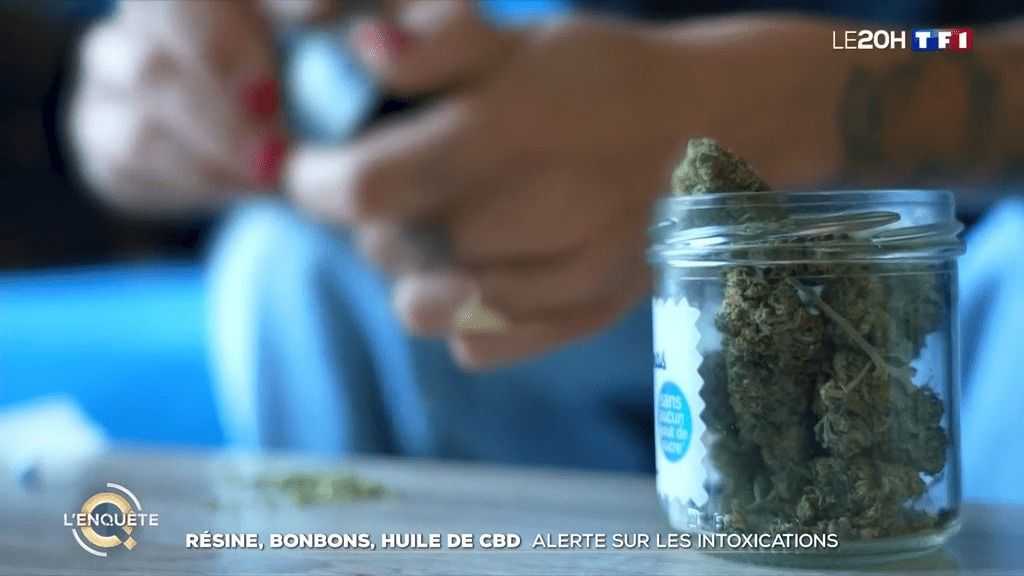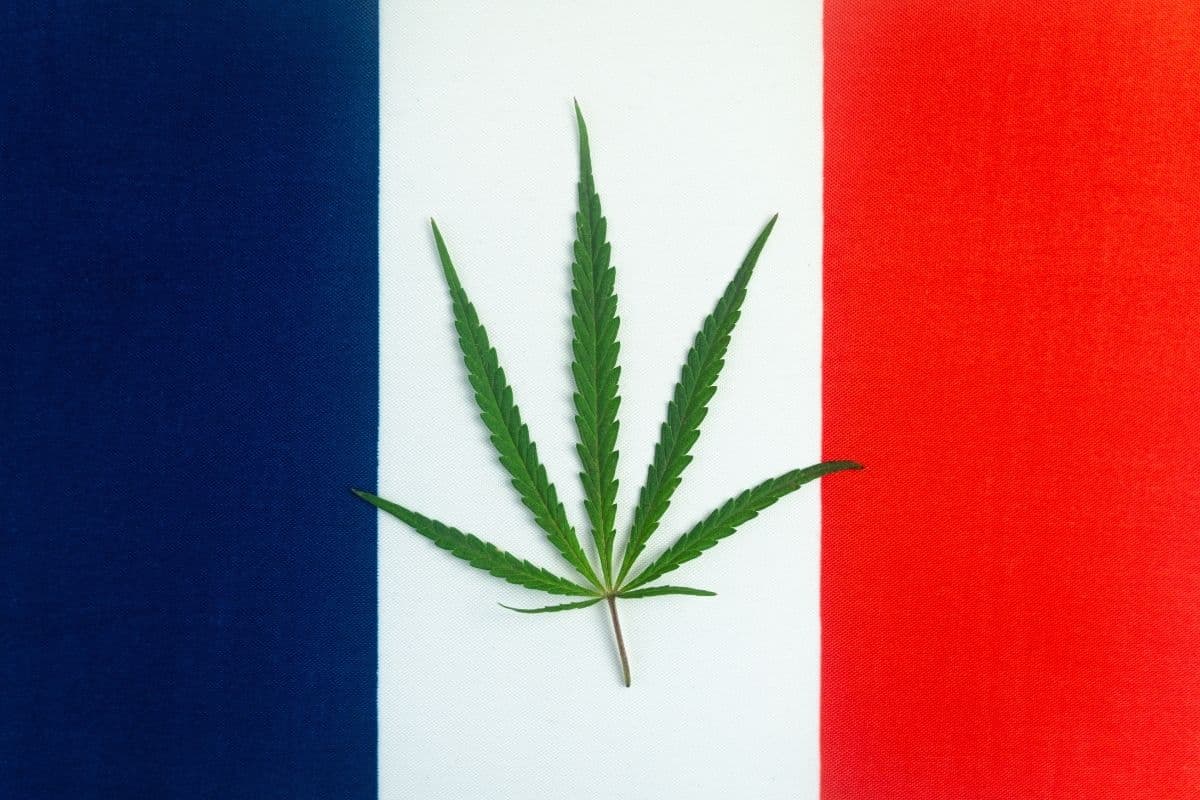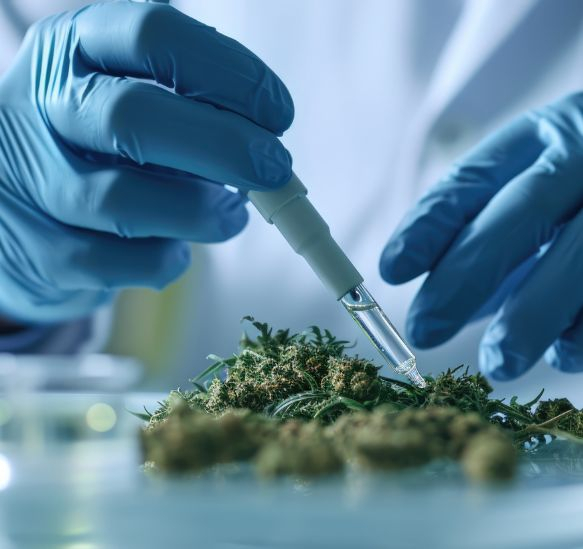A wave of poisonings from dubious CBD products
In France, poison control centres have seen a new reason for calls since the end of May: poisoning from CBD, or at least from products marketed with this label. In a report broadcast on 26 September 2025 on TF1's 8 p.m. news, victims recounted their ordeal, which included severe nausea, tremors, tachycardia, episodes of agitation, paranoia and hallucinations.
| Camille, a victim of a contaminated batch, recounts: ‘My body became extremely heavy, I almost fainted, my eyes were closing on their own, I started to shake, feel nauseous and even experience episodes of paranoia.’ She continues: ‘At one point, I wanted to jump off the balcony to see if it was real or not.’ Fortunately, the effects wore off several hours after consuming the questionable product. |

The Bordeaux Poison Control Centre, headed by Dr Magalie Labadie, has documented a series of similar cases in recent weeks. Most of the victims are young adults who purchase products from physical or online shops, believing they are consuming legal hemp.
Several customers and victims have handed over the packaging and remains of suspicious products to investigators. The labels bear the words ‘CBD’, sometimes with a promise of potency, but without a certificate of analysis. Retailers interviewed claim to have been duped by their suppliers. But what do these products contain?
Pinaca detected in batches labelled ‘100% CBD’
At the end of May 2025, the Massy customs laboratory identified Pinaca in samples taken from batches seized after reports were made. This is a synthetic cannabinoid. In other words, this substance does not occur naturally in the hemp plant. Instead, it was manufactured in a laboratory to produce effects that are more powerful and less predictable than CBD.
Initial analyses revealed the same chemical signature on flowers, oil residues and CBD e-liquids: the molecule appeared to have been either sprayed onto the plant material or dissolved in the oil base. These findings were corroborated by hospital services.
The material evidence collected by customs laboratories describes various methods of addition:
-
In some samples, Pinaca appears in the form of a spray applied to flowers;
-
On others, Pinaca appears in powder or solution form incorporated into e-liquids.
Initial traceability investigations point to imports from outside Europe, particularly India and China. The raw material is then transported to clandestine workshops in Europe, where it is used in the manufacture of ‘CBD products’ sold on the market.
|
Pinaca changes the status of sellers and buyers Any product containing pinaca is, in fact, subject to drug trafficking laws. Marketing, selling and even possessing it are serious offences that are liable to criminal prosecution. Consumers who buy it from dubious suppliers are therefore exposing themselves to both health and legal risks. |
What does the law say about CBD in France?
In December 2022, the Council of State confirmed that CBD-rich hemp flowers and leaves can be freely sold in France, thereby overturning the 2021 decree that prohibited their sale.
The European catalogue of hemp varieties sets out the list of strains authorised for cultivation. Only these plants may be used to produce CBD, with a maximum threshold of 0.3% THC measured on the raw plant to avoid psychotropic effects.
The DGCCRF regularly removes CBD oils, capsules and confectionery from shop shelves that have not obtained ‘Novel Food’ authorisation. These food products remain prohibited until they have been approved by the European Food Safety Authority.
On the road, any saliva or blood test that is positive for THC AUTOMATICALLY results in a charge for driving under the influence of narcotics... hence, once again, the vital importance of purchasing your CBD product from a reputable and reliable seller.
Seizures by customs and inspections by the DGCCRF (French Directorate General for Competition, Consumer Affairs and Fraud Control) may result in administrative fines, batch withdrawals and criminal prosecution. Marketing a product containing a synthetic molecule classified as a narcotic is punishable by heavy fines and imprisonment.

At 321CBD, we monitor the legislation governing CBD and other cannabinoids on a monthly basis. We recommend that you explore the legislation section of our blog if you are interested in this topic.
It's a game of cat and mouse between manufacturers and health laboratories
Manufacturers regularly introduce new synthetic cannabinoids onto the European market to circumvent bans and deceive consumers and, sometimes, retailers, promising ‘tenfold effects’ while remaining within the law.
Customs laboratories and poison control centres must therefore increase testing to identify these variants and classify them as narcotics as soon as possible.
On 13 June 2023, hexahydrocannabinol (HHC) and two of its derivatives, HHC acetate (HHCO) and hexahydroxycannabiphorol (HHCP), were added to the list of narcotics. Their production, sale and use have since been banned in France, following several reports of poisoning.
In December 2023, the gendarmerie intercepted a stock of e-liquids containing HHCP in Lyon. The bottles, labelled ‘premium CBD’, did not mention any synthetic molecules.
In June 2024, customs officials in Le Havre seized 40 kilograms of chemical powders from Asia intended to be sprayed on dried flowers. Analyses revealed previously unknown synthetic cannabinoids, which were quickly sent to public laboratories for examination.
| Each classification procedure takes several months... a period during which the substance continues to circulate on the market. As soon as one molecule is banned, another slightly modified one appears and the race against time begins again for health laboratories. |
321CBD's commitment to safe, traceable and healthy CBD products
As we explain in our ethical charter, we only work with producers who can document the cultivation of hemp, the extraction method and the legal compliance of the batches of hemp delivered. Our suppliers are all located in France, Switzerland and Italy, where we can control every stage of production.
Each product then undergoes two rigorous checks:
-
An independent laboratory systematically analyses samples for CBD content, THC content, absence of contaminants, heavy metals, pesticides, etc.
-
Our teams check the certificates, packaging and integrity of the batch before shipment.
Synthetic cannabinoids and molecules known as ‘neo-cannabinoids’ are simply excluded from our online shop WITHOUT DISCUSSION and WITHOUT EXCEPTION.
| As long as a substance is not explicitly recognised as safe and legal, it will not appear in our catalogue. We refused to sell HHCP and its derivatives even before they were officially banned, and we apply the same policy to any new molecule. |
This rule applies to all variants that regularly appear on the market with the aim of circumventing regulations. Even if the law temporarily tolerates these products, we consider them to be hazardous to health and contrary to our mission.
Our position is simple: no experimentation on consumers is acceptable, and no gambles can be taken on the unknown. As the long-term effects of these substances have not been established, we systematically choose to protect our consumers rather than give in to the temptation of profitability.








